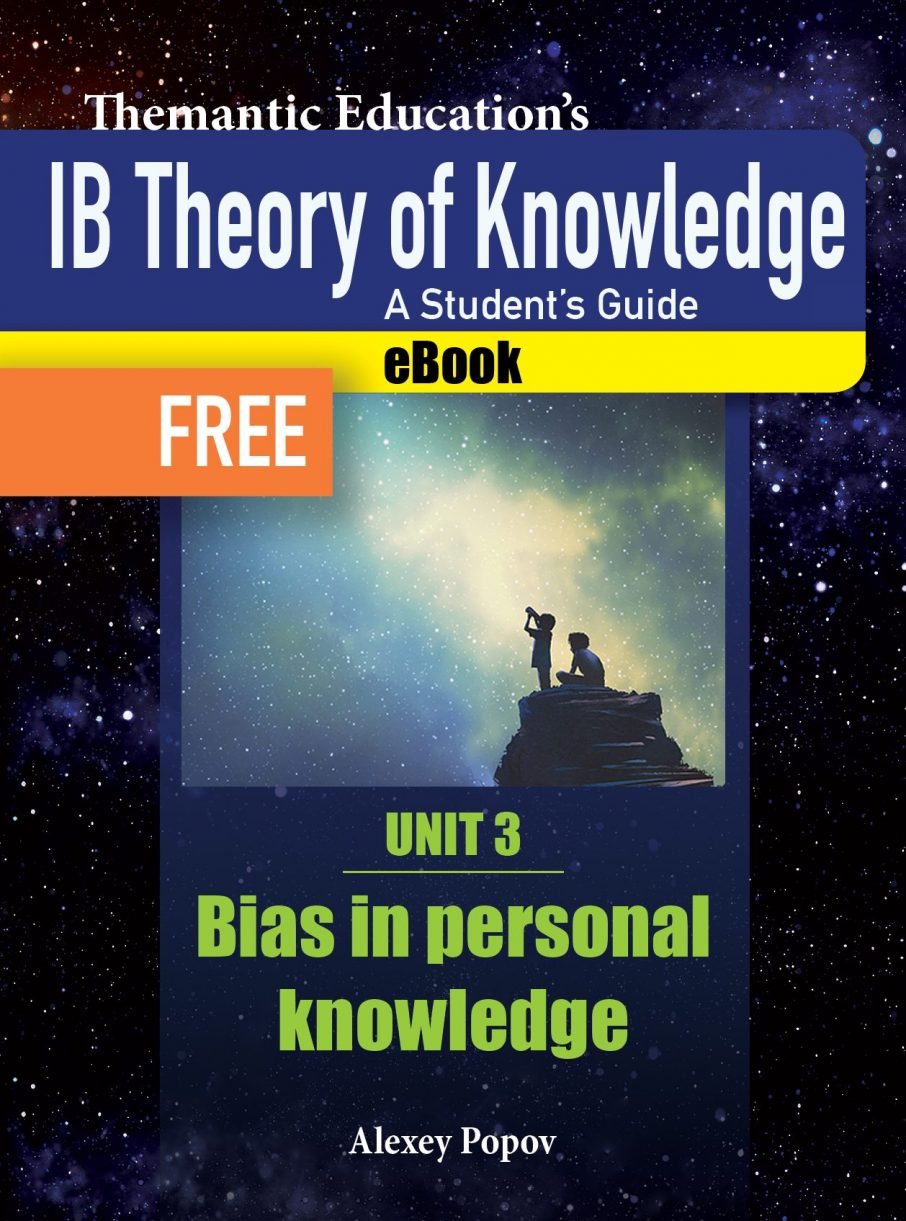Alexey Popov and the ThemEd team have been working hard on our new TOK textbook, “TOK: A Student’s Guide.” The entire third chapter, “Bias in Personal Knowledge” is now available for free on our website.
DOWNLOAD FREE eBOOK HERE!
Like all themantic materials, this eBook chapter “Bias in Personal Knowledge” from our new TOK textbook is based on addressing real world problems and issues that are meaningful and relevant for students.
The key questions targeted in Chapter 3 (Bias in personal knowledge) are simple but at the same time profound:
- In what ways does bias affect our everyday knowledge?
- Why is our knowledge biased?
- Can bias be reduced?
This chapter includes 10 lessons focused on how bias (one of our overarching concepts) manifests itself in the knowledge that we acquire in our everyday lives.
Nobody wants to be biased. But nobody can avoid being biased. The chapter will guide students in a journey of self-reflection through the lens of TOK concepts: how can they know if their knowledge is biased? Is there anything they can do about it?
It also builds several key thinking skills, most importantly, analogical reasoning and what-if thought experiments.
You will see that all four elements of the knowledge framework are consistently addressed in each lesson, but questions of ethics are also specialized in a standalone lesson at the end of the chapter (Compos Mentis).
Buy the complete textbook here (Available August, 2020)
Warning: After studying the chapter some of your deeply rooted beliefs may be shattered.
Don’t forget to download our (free) Teacher Support Pack for the chapter. It includes all lesson plans, student workbooks, activities and PowerPoint presentations.
As you might know, the IB no longer uses the distinction between personal knowledge and shared knowledge in the Guide, but we decided to revive it because it brings more clarity:
- Bias in personal knowledge (Chapter 3) links to the IB Core theme, “Knowledge and the knower”.
- Bias in shared knowledge (Chapter 4) links to areas of knowledge. Areas of knowledge are always areas of shared knowledge.
This is important to understand because TOK essay titles will be based on areas of (shared) knowledge. Therefore, arguments related to personal knowledge (Chapter 3) will not be that relevant in a TOK essay, however, they will be highly relevant in a TOK exhibition. Which is why it makes sense to study this chapter in the first year of the IB DP programme.
This also explains why there are not so many connections to areas of knowledge in this chapter. Refer to this table for a general overview of how Themantic chapters map onto linear TOK units:

COMING UP: Chapter 2 (Knowledge and technology) will be released shortly as a free eBook! You will see from this chapter how we combine the theme with all five areas of knowledge. Combined, the two chapters include 26 hour-long lessons, which means that we have you covered for up to 6 months of teaching at the start of the course.
Travis Dixon is an IB Psychology teacher, author, workshop leader, examiner and IA moderator.
